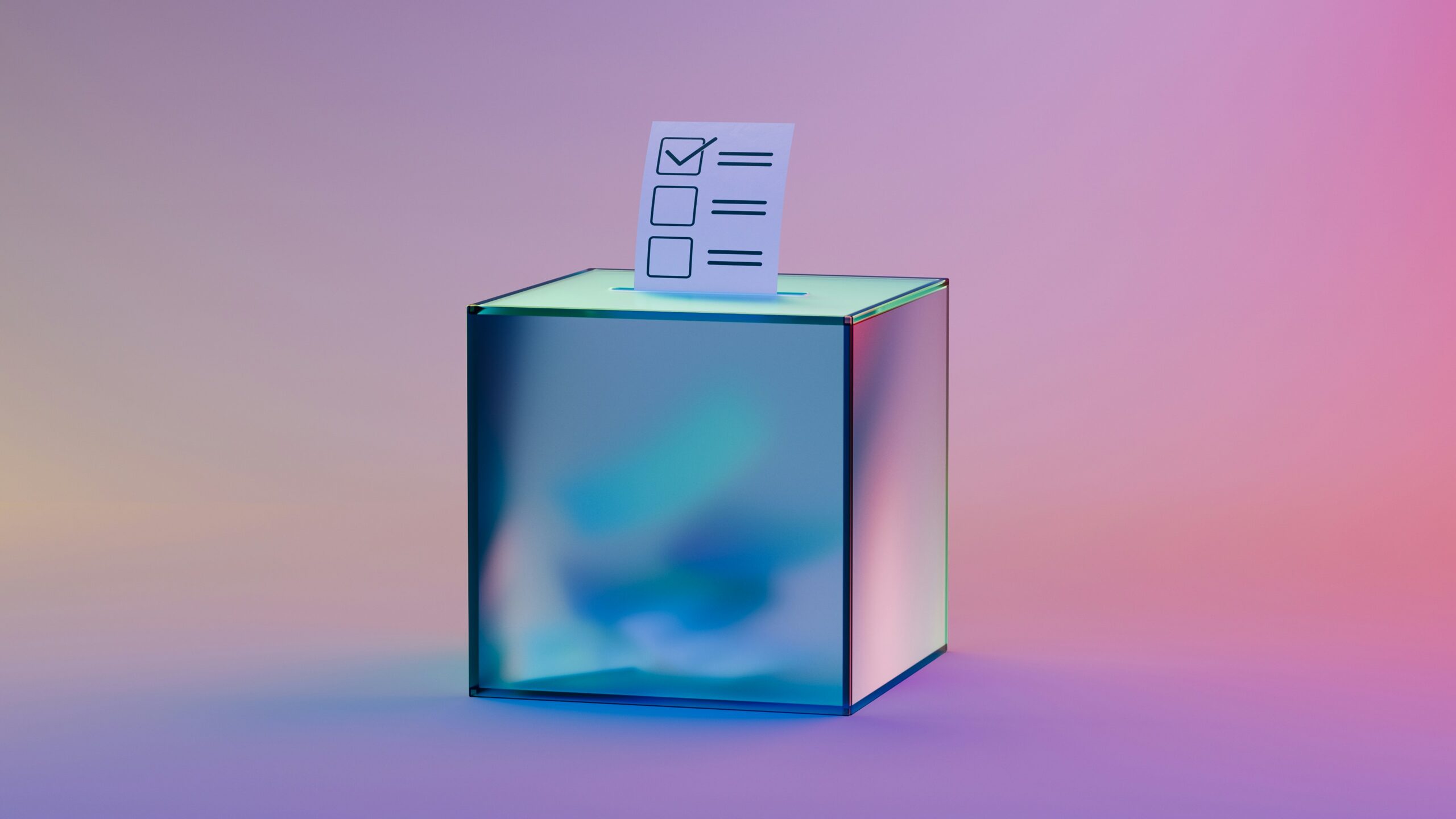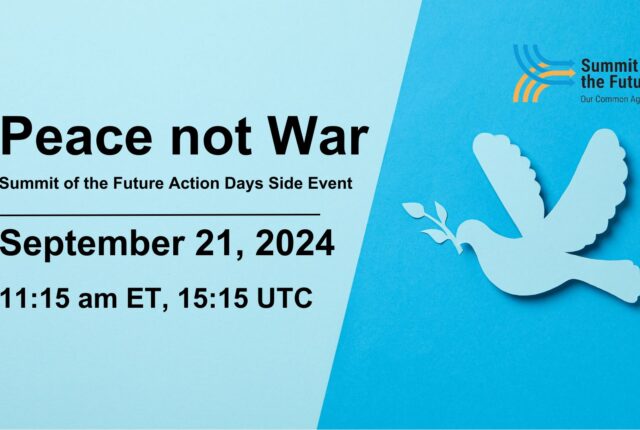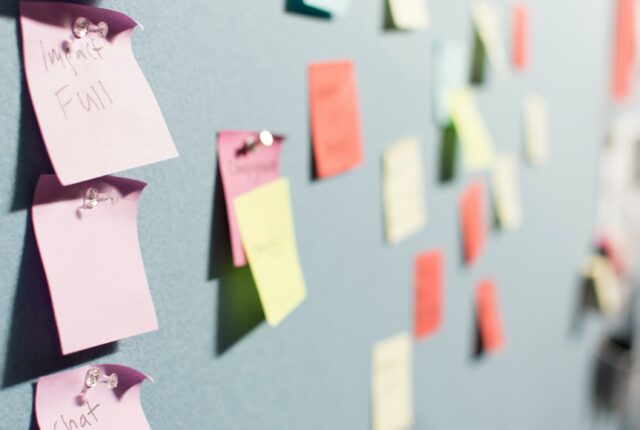Post updated December 20th, 2024.
On 19 December 2024, we are proud to announce that SDSN has been elected to the NGO-UNESCO Liaison Committee for the 2024-2026 term, representing the Western Europe region, which also includes the United States and Canada. In a highly competitive election with over 22 organizations running for this seat, SDSN secured 39 votes (36.79% of the total), surpassing the requirement for the most votes, with 106 votes cast and 2 abstentions. This achievement reaffirms our commitment to global cooperation and advancing shared goals.
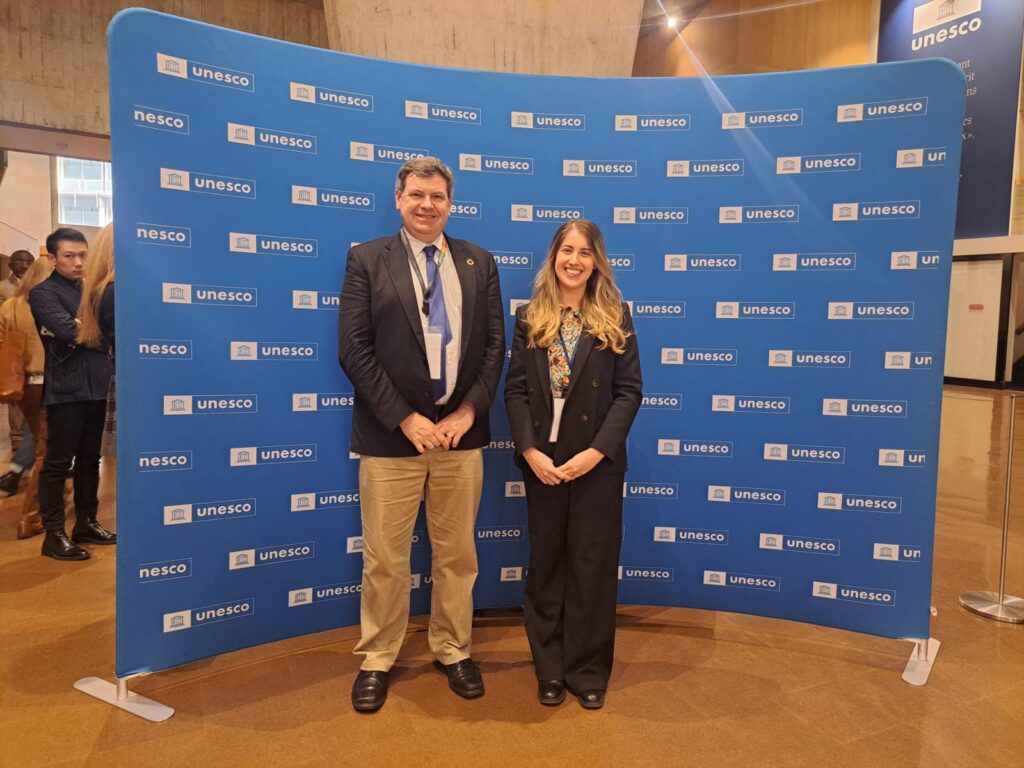
UNESCO holds a formal relationship with a global network of 425 official NGO partners, including SDSN, represented by the SDG Academy. Every two years, the International Conference of NGOs elects members to the NGO-UNESCO Liaison Committee. This key body represents NGOs’ collective voice, fosters dialogue with UNESCO, and organizes international forums on priority global issues.
SDSN’s role on the NGO-UNESCO Liaison Committee will be represented by Isabela Carrozza Joia, Program Associate at the SDG Academy, and Paul Walsh, Vice President of Education and Director of the SDG Academy.
We are eager to contribute to the Committee’s mission by bringing forward our vision, expertise, and dedication to collective action and international collaboration.
Why is SDSN running for a seat on the NGO-UNESCO Liaison Committee?
SDSN ran to ensure NGOs have a meaningful voice in shaping UNESCO’s priorities and strategies. We envision the Committee as a collaborative platform where civil society and member states can align on shared goals and innovative solutions to global challenges.
Moreover, being part of the governance process also provides strategic leverage to implement projects and programs that align with UNESCO’s mission. This is a unique opportunity to contribute to UNESCO’s broader agenda while highlighting areas of priority like quality education, youth leadership, and sustainable development.
What can SDSN bring to the UNESCO-NGO Liaison Committee?
SDSN brings to the table a global network of over 2,000 institutions, including universities, think tanks, and research centers, offering unique insights and expertise. This reach ensures the Liaison Committee benefits from a unique network of professionals committed to advancing the sustainable development goals. It is a tool to leverage and help UNESCO engage a broader range of local stakeholders, making sure their actions are being recognized globally.
Our experience in the UN Major Group framework, ECOSOC Partnership Forum and further partnerships with UNESCO, such as contributions to the Open Educational Resources Recommendation, and Mission 4.7, position us as a valuable asset in bridging civil society and member states.
By holding this position, SDSN aims to ensure the Committee becomes a key platform for engaging diverse stakeholders in UNESCO’s work. Our goal is to bring together diverse voices and create opportunities to share new ideas, priorities and expectations for UNESCO’s activities through a set of activities, such as events and workshops.
Who is representing SDSN in this candidacy, and why?
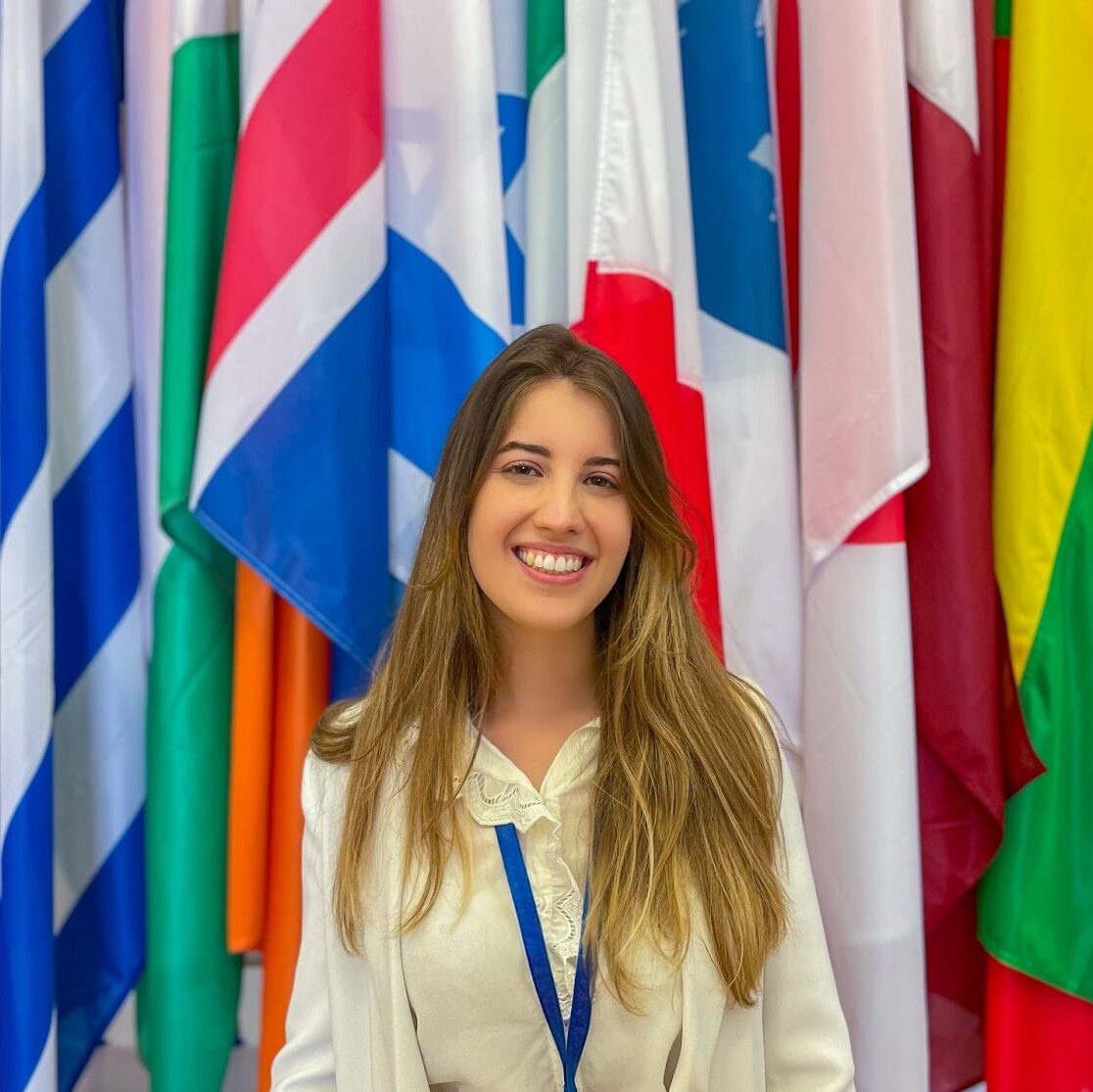
SDSN’s candidacy is represented by Isabela Carrozza Joia, a young professional from Brazil with experience at the OECD and SDSN. She currently advances SDG Academy’s professional initiatives supporting the green transition in Europe.
Isabela aims to use her expertise in impactful communications for sustainable development to amplify civil society voices within UNESCO and foster stronger collaboration with member states. As a youth candidate, she brings fresh perspectives and is committed to ensuring younger generations play a central role in shaping more inclusive and equitable societies.
What are our proposals for the NGO-UNESCO Liaison Committee?
SDSN envisions a Liaison Committee that is more influential, inclusive, and impactful. Key proposals include:
Amplifying Civil Society Voices
By leveraging SDSN’s global network of over 2,000 institutions and experience with the UN Major Group framework, we aim to enhance the role of NGOs in shaping UNESCO’s agenda, ensuring that civil society contributions are meaningful and impactful.
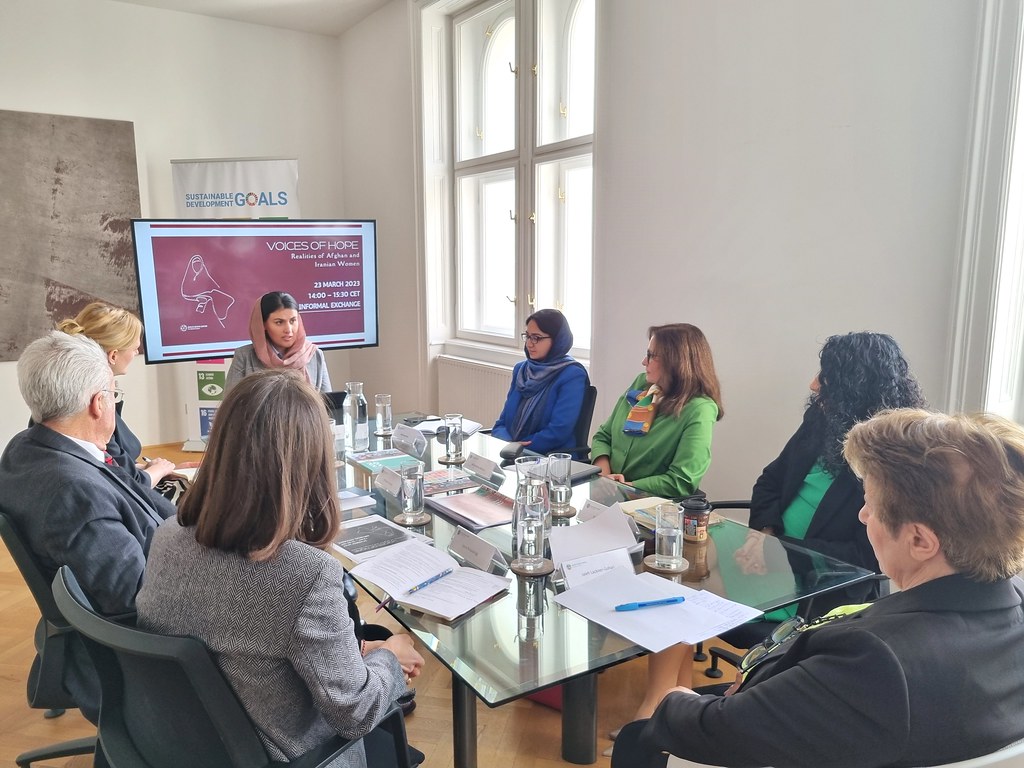
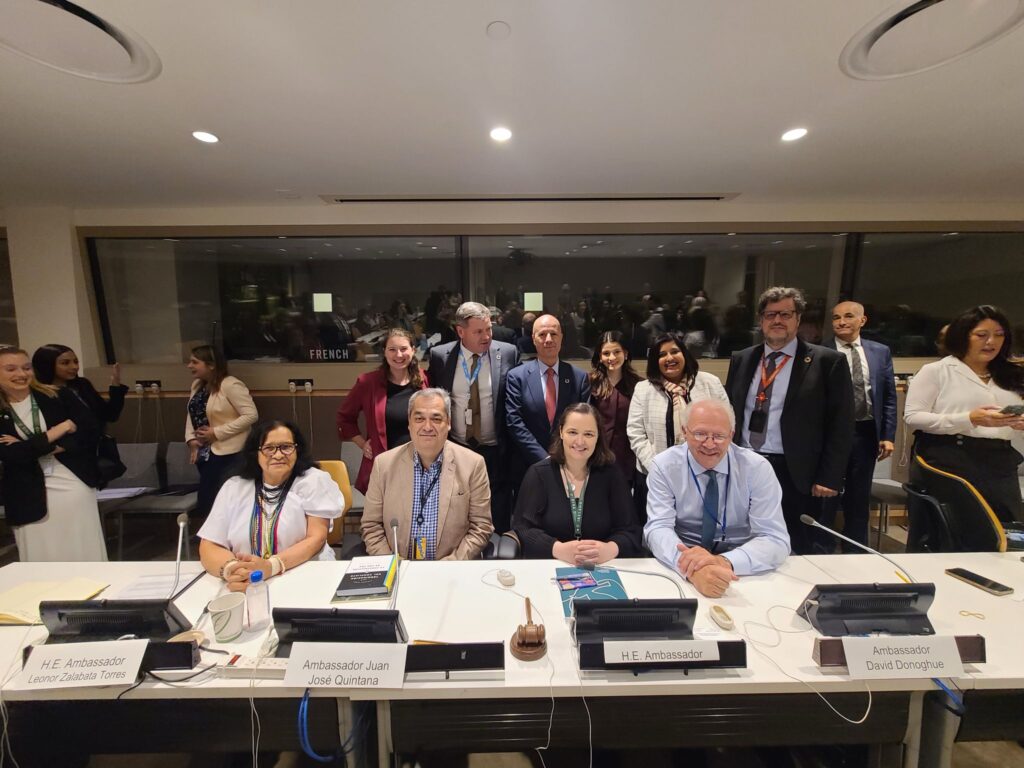
Enhancing Member State Engagement
With Isabela’s expertise in communications and advocacy, we will work to strengthen the Liaison Committee’s collaboration with UNESCO member states, ensuring alignment between NGO priorities and government policies.1
Advocating for Inclusive Education
Building on SDSN’s contributions to initiatives like the Open Educational Resources (OER) Recommendation and Mission 4.7, we will advocate for broader access to lifelong learning opportunities. Priorities include promoting accessible green and digital skills for the future workforce and empowering young leaders through education.
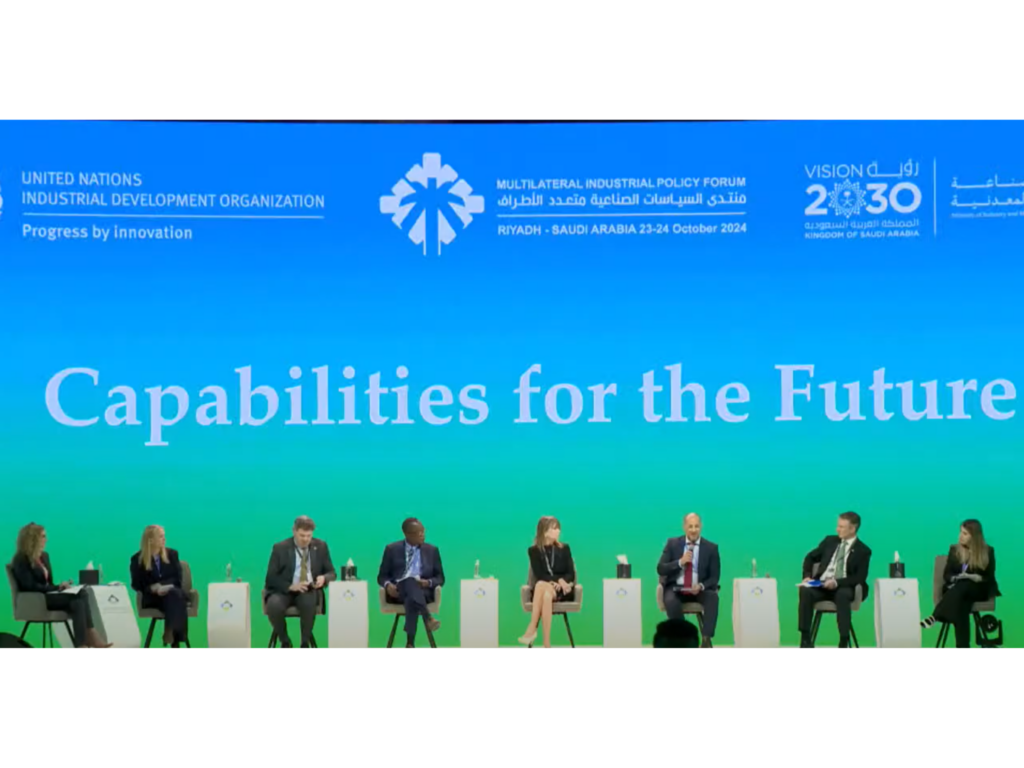
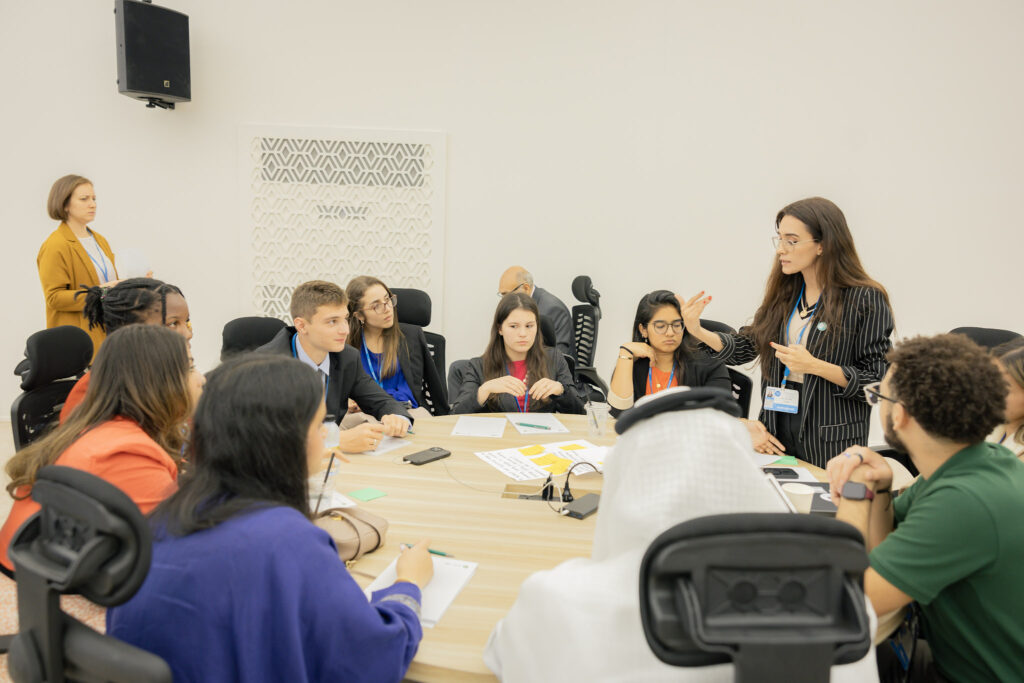
Strengthening Regional Representation
Drawing on Isabela’s roots in Brazil and her understanding of Latin America’s unique challenges, we propose creating more opportunities for NGOs from underrepresented regions to actively participate and influence UNESCO’s programs.
Empowering Youth Leadership
As a youth candidate, Isabela aims to make the Liaison Committee a platform for innovative ideas from younger generations, fostering intergenerational dialogue to tackle global challenges.2
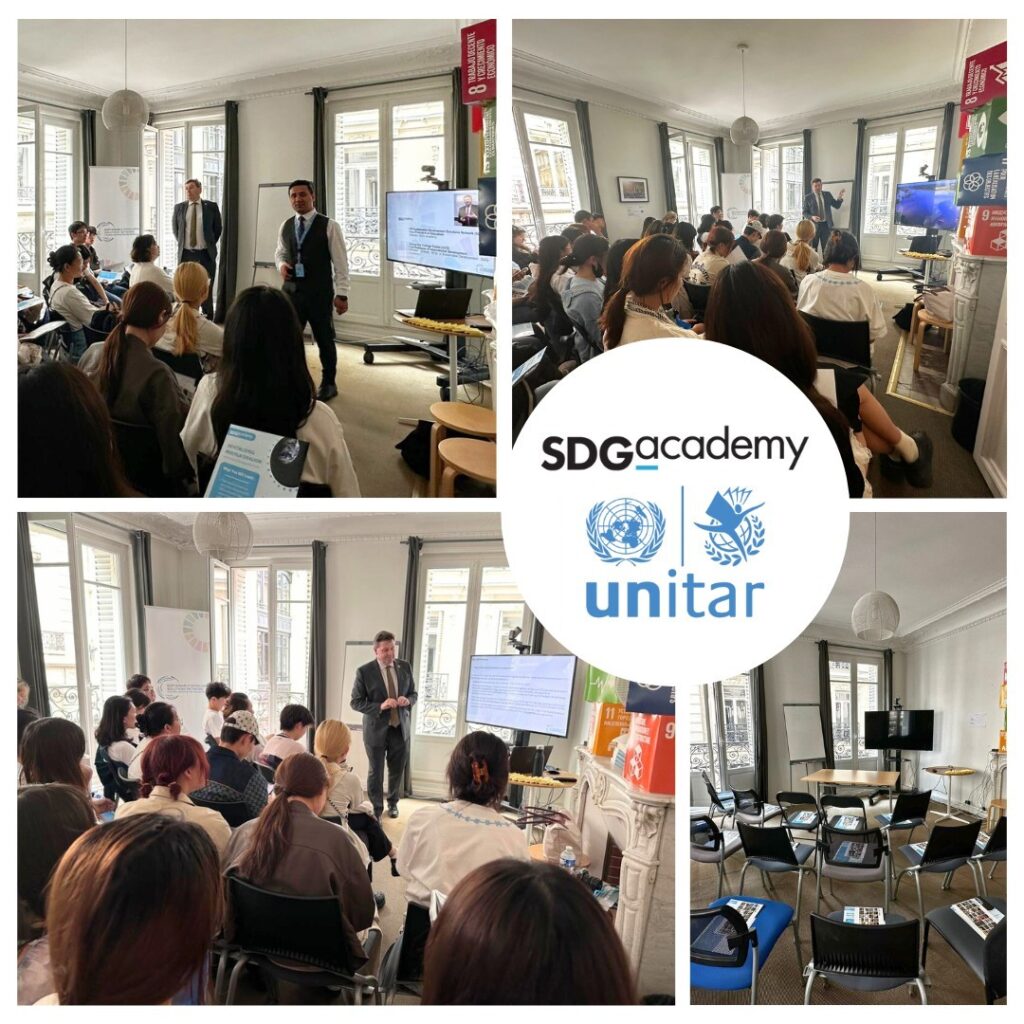
We believe these priorities align with UNESCO’s mission and offer a roadmap for impactful collaboration in the coming years.
The elections will take place from December 16 to 19 during the 2024 International Conference of NGOs at UNESCO Headquarters in Paris, France. Voting is open to all NGOs in official partnership with UNESCO. We warmly invite organizations with this status to connect with us, learn more about our platform, and support our candidacy.
Photo Captions:
- SDG Academy co-hosted ‘Peace not War’, a Summit of the Future Action Days event on the International Day of Peace, September 21st, together with The Permanent Mission of Ireland to the United Nations, the Permanent Mission of Colombia to the United Nations, UN Department of Global Communications, in collaboration with United Nations Academic Impact, UNESCO, Dag Hammarskjöld UN Library, and the International Federation of Library Associations and Institutions (IFLA). ↩︎
- Workshop held at SDSN Paris office for UNITAR undergraduate students on the SDGs progress. ↩︎
